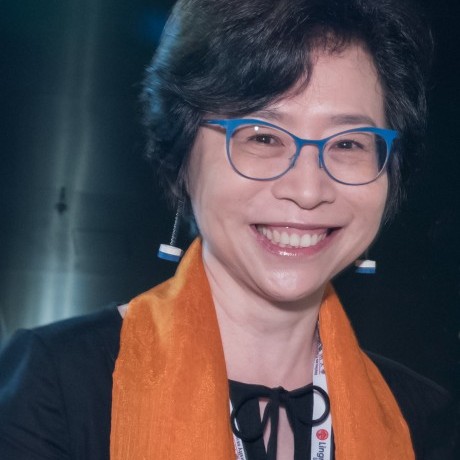
Dean of the Faculty of Arts and Lam Wong Yiu Wah Chair Professor of Visual Studies
Professor Yeh Yueh Yu, Emilie
The demographics and technology shaping Chinese cinema’s future
The rapidly growing box office clout of moviegoers in China, and the even faster rate at which streaming technology is developing, are reshaping the art and commerce of cinema across the globe.
Professor Emilie Yeh, Lingnan’s Lam Wong Yiu Wah Chair Professor of Visual Studies, Dean of the Faculty of Arts and Director of Centre for Cinema Studies, is a specialist in Chinese and Asian cinema studies, an area of research that is becoming increasingly popular with scholars.
Serving a huge domestic audience
The rise of the Mainland’s middle class, especially in the nation’s second and third-tier cities, is one of the main reasons for the growing demand for movies, Professor Yeh explains. “This has galvanized the production of big budget, spectacular domestic films, and has also made China a partner in global Hollywood blockbusters such as Transformers.”
Though Chinese films occasionally achieve international success, they usually only get limited exposure, and a muted reception, on screens around the globe. “There are various reasons for this phenomena, but it is mostly related to the political and social conventions the films follow,” Professor Yeh believes. Audiences used to Hollywood movies often find their Chinese equivalents difficult to relate to because of their didactic patriotism and the indirect way in which love is expressed.
“Besides, East Asian- or Chinese-themed pictures do not require global visibility, as there are plenty of markets on our own patch to sustain the production of regional blockbusters,” Professor Yeh points out. “China by itself is large enough to sustain decades of movie making. Whether these will break out to reach audiences outside the country…time will tell.”
Beijing’s relationship with cinema
In the past, Mainland films were largely a form of propaganda, called ‘main melody’ (zhuxuanlu), she explains. This melody was ‘played’ by the Chinese Communist Party (CCP).
“More recently, in the new millennium, the melody has changed, with state-sanctioned blockbusters such as Operation Red Sea and The Wandering Earth being produced. Films made in the People's Republic of China now, aren’t nearly as propagandist as they once were, because today’s CCP rules and regulations are more fluid and tend to have an uneven impact across the media.”
The new big budget movies use genres and formats that are globally popular, such as science fiction and animation, but have patriotic themes that uphold solid, and approved, virtues.
Until recently, genres such as the supernatural or horror that are popular in Hong Kong, were forbidden on the Mainland. Now, because of the need to supply a greater number, and a more diverse range, of films to compete with foreign imports in the growing domestic market, the censorship rules have been somewhat relaxed.
“But these rules are in a constant state of flux and contingent on what else is happening in the political, social and commercial spheres. Producers need to seek the advice of well-connected intermediaries on the prevailing dos and don’ts.
“The intermediaries are crucial in film production and exhibition in China. This also explains why the entire system seems opaque from an outsiders’ perspective, because they don’t know where to find such intermediaries or identify if they are reliable.”
And censorship can sometimes spur creativity, Professor Yeh points out. In the past, independent directors, such as Jia Zhangke or Jiang Wen, ‘got away with’ opinionated, or even subversive themes. “In China, censorship isn’t necessarily an inhibitor, but can also be a catalyst for imaginative leaps and allegories.”
Methodology and new areas of research
When it comes to her approach to research, Professor Yeh says she’s committed to historically-informed practice, and she advises her students to carefully weigh historical precedents and trajectories.
“Given the speed with which technologies age and become extinct, it’s important to recover the various tools and conventions that preceded our present array of ICT. This is a ‘swipe’ at methodological Presentism, the notion that we are now the apotheosis of technological advancement and progress.”
The way in which technology is enabling films to be accessed online and viewed on a range of devices is opening up new markets for film producers and new lines of theoretical inquiry for scholars, she notes. And uncertainty still surrounds the regulation of emerging digital environments. “Digital images have truncated the ‘indexical’ connections between photography and the physical world, and critical thinkers have for a long time been pondering this deracination.”

